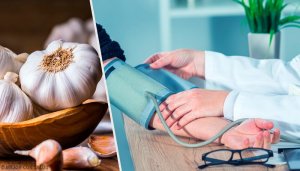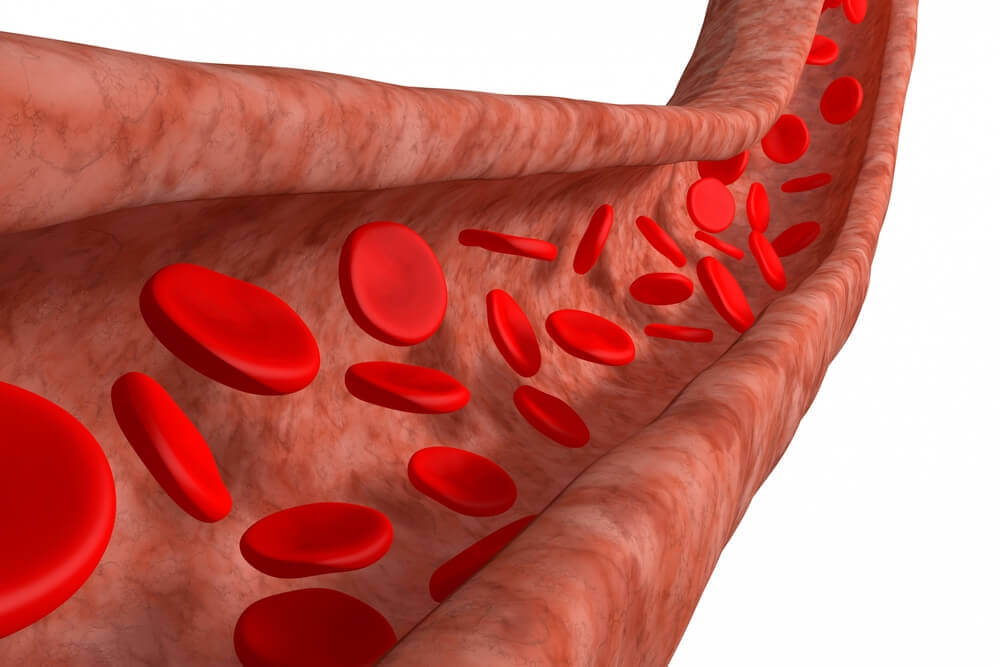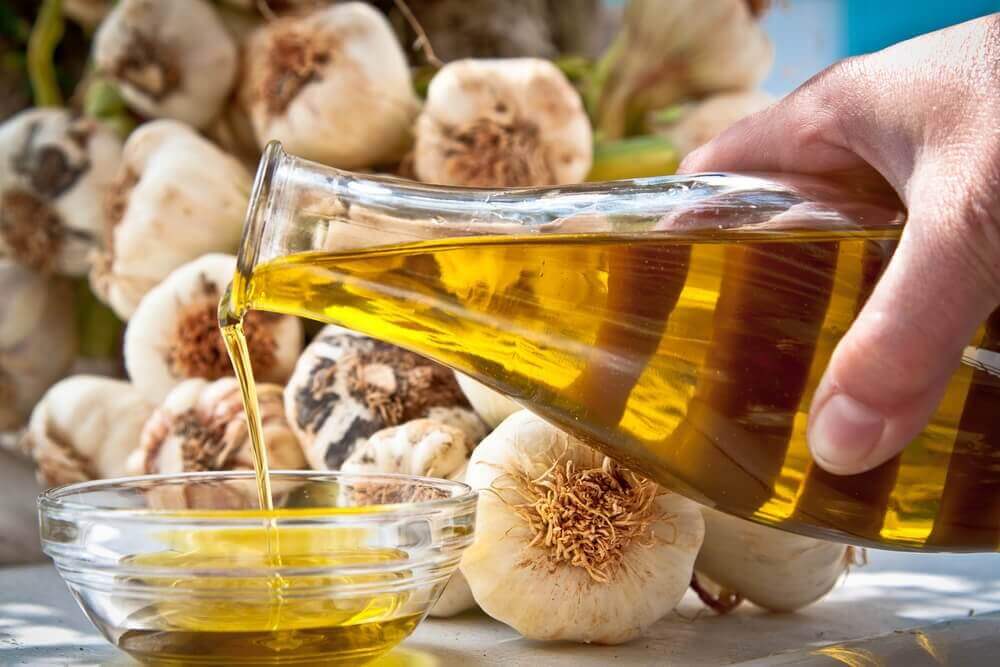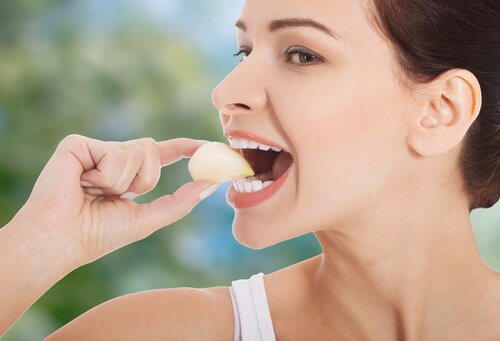How to Use Garlic to Treat Hypertension


Reviewed and approved by the doctor Nelton Abdon Ramos Rojas
Hypertension is the term for high blood pressure. This has an impact on the arteries. Basically, they harden and lose flexibility, and therefore the blood doesn’t flow as easily as it should. However, it’s possible to treat hypertension naturally.
Hypertension conditions vary, but the most common one is related to excess cholesterol and fat. In such cases, the blood becomes thicker and the heart needs to work harder.
Stress and anxiety can also increase your heart rate, so the blood flows with more force than normal. Knowing all this, we can’t ignore that it seriously increases the risk of myocardial or cerebral infarction.
It’s also possible to intermittently develop this condition for other reasons related to circulation problems.
Why use garlic to treat hypertension?

Garlic contains Allicin, and its value for hypertension is spectacular. Although, it only works to lower blood pressure if it’s eaten raw. As we’ve mentioned in other articles, when cooked, the benefits of many foods can be lost.
This happens because with the change in temperature, so changes the molecular structure. Therefore, although it still just looks like garlic, its qualities are very different.
However, better to mix it with other diuretic foods, or foods rich in antioxidants. This way, you’ll be able to thin out your blood and reinforce the health of your arteries.
Garlic Powder
In a herbal store, you can generally find this in capsules or in a jar. Capsules have the advantage of being able to consume garlic without having the deal with the smell.
In fact, many people that work in people facing roles try not to eat this incredible food for this very reason.
In the case of powder, you can use it just like salt. It works to dress your foods with a potent flavor. Try it on salads, grilled fish, or meat. But remember, always after cooking.
Bear in mind that salt increases blood pressure, as well as encouraging the release of an antidiuretic hormone.
Garlic and olive oil

Amongst the possible natural products to treat hypertension, this combination is perfect. The omega-3 fatty acids in olive oil help the flexibility of the arteries, and therefore help lower blood pressure.
One very practical option is to soak a couple of garlic cloves in a bowl of olive oil to marinate.
Then, you can pour it over bread. If you maybe add some tomato, you’ll have a delicious mediterranean breakfast with some fantastic health benefits.
Cold soups and mayonnaise with natural products to treat hypertension
Gazpacho is a perfect food choice because it is one of the cold soups that contain more natural products for dealing with hypertension.
As well as garlic, there are other diuretic ingredients like onion and cucumber. These also nourish the walls of the arteries and strengthen the heart.
Garlic is also present in many mayonnaises, like alioli. Again, here we have a mixture of garlic and olive oil, but with another star ingredient: eggs.
Discover: Four Soups to Eliminate Toxins
Whole garlic

There are people that can tolerate this very well, and others who can’t. If you can, try to eat a whole clove of garlic in the morning, as if it were a tablet.
If you have a problem with the smell, which we referred to earlier, you can save this method for the weekends and use other methods the rest of the week.
Of course, those of you who have a problem with it don’t have to worry. There are people who can stand it much better than others.
As well as using these natural products for hypertension, it’s also good to do some cardiovascular exercise, like walking.
This helps blood circulation since it burns the fat that makes it harder for your heart to pump the blood around the body.
All cited sources were thoroughly reviewed by our team to ensure their quality, reliability, currency, and validity. The bibliography of this article was considered reliable and of academic or scientific accuracy.
- Liu, C., Cao, F., Tang, Q. Z., Yan, L., Dong, Y. G., Zhu, L. H., … Li, H. (2010). Allicin protects against cardiac hypertrophy and fibrosis via attenuating reactive oxygen species-dependent signaling pathways. Journal of Nutritional Biochemistry, 21(12), 1238–1250. https://doi.org/10.1016/j.jnutbio.2009.11.001
- Jain, A. P., Aggarwal, K. K., & Zhang, P. Y. (2015). Omega-3 fatty acids and cardiovascular disease. European Review for Medical and Pharmacological Sciences, 19(3), 441–445. https://doi.org/10.1097/MCO.0b013e3280127af0
- Banerjee, S. K., & Maulik, S. K. (2002, November 19). Effect of garlic on cardiovascular disorders: A review. Nutrition Journal. https://doi.org/10.1186/1475-2891-1-1
This text is provided for informational purposes only and does not replace consultation with a professional. If in doubt, consult your specialist.








